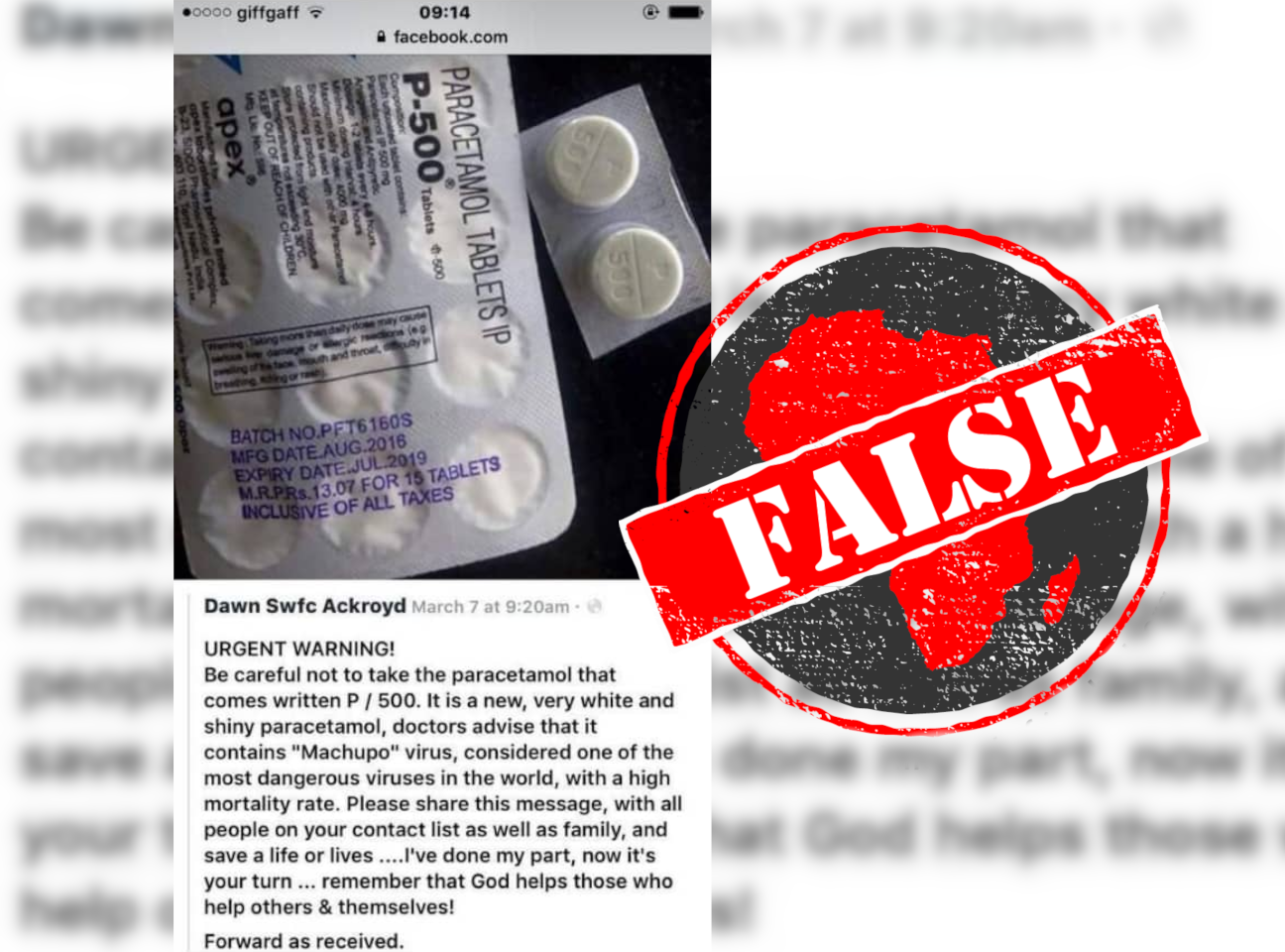IN SHORT: Paracetamol tablets stamped “P-500” do not contain Machupo virus. This claim continues to resurface on WhatsApp and Facebook in different countries, but there’s no scientific evidence to back it up.
At least six years after it first appeared, a message warning people not to take paracetamol tablets stamped with “P/500” or “P-500” is again circulating on WhatsApp in South Africa.
The message reads: “URGENT WARNING! Be careful not to take the paracetamol that comes written P/500. It is a new, very white and shiny paracetamol, doctors advise that it contains ‘Machupo’ virus, considered one of the most dangerous viruses in the world, with a high mortality rate ...”
No information is given about which doctors or medical institutions were consulted to reach this conclusion.
Paracetamol is a pain reliever used to treat mild to moderate pain and reduce fever. The usual dose of the drug for adults is usually 500 milligrams or 1 gram.
The Machupo virus causes Bolivian haemorrhagic fever, also known as black typhus, according to experts at US-based Stanford University. It is only endemic to Bolivia, a country in South America, meaning that cases have only been recorded there.
The Stanford report on the virus says it “is spread through aerosolised, food-borne or direct contact of virus particles”.
We traced the claim as far back as 2017. It has also been shared on Facebook here, here, here, and here.
But can paracetamol pills be laced with Machupo virus?

Old hoax still false
Africa Check investigated this claim in January 2019, when it was circulating on WhatsApp in Nigeria.
At the time, Dr Olumuyiwa Odusote, secretary-general of the Nigerian Medical Association, told us: “Such a virus cannot survive outside a living organism.”
It is impossible for the Machupo virus to survive in a pill.
In 2017, fact-checking site Snopes also investigated the claim and found it to be false.
Over the years, it has also been debunked by other news outlets and fact-checking organisations, including the Bangalore Mirror, the Quint and the Star, Factly, the Hindu and the Times of India.
A statement from the Zambia Medicines Regulatory Authority, dated 7 May 2023, said the warning was “inaccurate and not a cause for concern”.
It said no cases of Machupo virus could be linked to paracetamol.
This hoax seems to recur regularly in different countries and is still false.
It may discourage people from taking the painkiller when they need it.
Republish our content for free
For publishers: what to do if your post is rated false
A fact-checker has rated your Facebook or Instagram post as “false”, “altered”, “partly false” or “missing context”. This could have serious consequences. What do you do?
Click on our guide for the steps you should follow.
Publishers guideAfrica Check teams up with Facebook
Africa Check is a partner in Meta's third-party fact-checking programme to help stop the spread of false information on social media.
The content we rate as “false” will be downgraded on Facebook and Instagram. This means fewer people will see it.
You can also help identify false information on Facebook. This guide explains how.


Add new comment